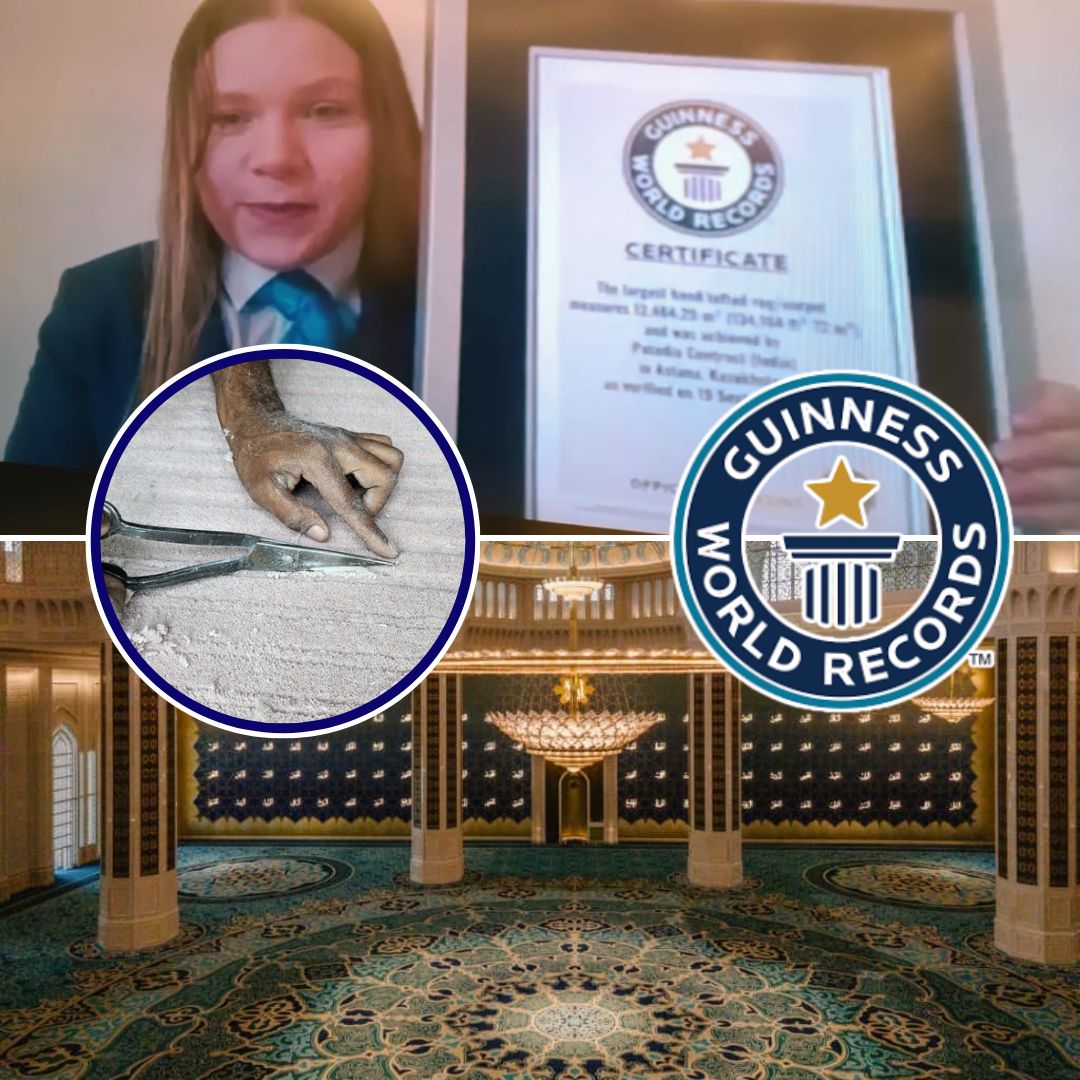In a historic moment for Indian craftsmanship, Bhadohi, the carpet city of Uttar Pradesh, has secured a place in the Guinness Book of World Records for creating the world’s largest handmade rug. This monumental hand-tufted carpet, measuring an astonishing 12,464.29 square metres, now graces the Grand Mosque in Astana, Kazakhstan, Central Asia’s largest mosque.
Crafted by over 1,000 skilled artisans from Bhadohi, the project took six months to complete, with an additional 50 days dedicated to laying the carpet in its designated place in the mosque. The rug, which features the Persian design known as ‘Jannatul Firdaus,’ was validated by Guinness World Records officials with official certification received on October 7, 2025.
The entire project, valued at approximately Rs 12 to 13 crore, represents a blend of traditional Indian skill and international collaboration, underscoring India’s prominence in the global weaving industry.

Craftsmanship and Production Process
The making of this extraordinary carpet involved meticulous craftsmanship and detailed planning. The rug was created using 100% New Zealand wool, carefully hand-tufted to meet the highest standards of artistry and durability. To facilitate the installation, the carpet was split into 125 individual pieces, each coded to ensure precise assembly inside the mosque.
The design’s focal point is a 70-metre-wide circular pattern that forms the heart of the rug, contributing to its grandeur and aesthetic appeal. Despite the challenges posed by the COVID-19 pandemic, the artisans worked with remarkable dedication to meet the strict six-month deadline from January to June 2021.
Transported from India to Kazakhstan, the carpet’s placement required expert handling, with teams from Bhadohi and Dubai supervising the installation over a meticulous 50-day period to ensure flawless execution.

Bhadohi’s Legacy and Significance
Bhadohi has long been celebrated as India’s carpet-making hub. The town’s centuries-old tradition of handmade carpet weaving has earned it international acclaim for quality and intricate designs. This Guinness World Record not only cements Bhadohi’s status on the world stage but also shines a spotlight on the resilience and skill of Indian artisans, especially during times of global crisis. The carpet industry sustains thousands of artisans and contributes significantly to the local and national economy.
Such recognitions help attract greater attention from policymakers and exporters, advocating the need for continued investment and support to preserve traditional craftsmanship. The project also represents a cultural bridge, linking Indian heritage with an architectural marvel in Central Asia, thus fostering cross-cultural appreciation and cooperation.
The Logical Indian’s Perspective
This landmark achievement highlights how cultural heritage and artisanal expertise can unite communities beyond borders, enriching global cultural dialogue while empowering local economies. The Logical Indian recognises the tremendous value of supporting traditional crafts, which embody the spirit of peaceful coexistence, empathy, and dialogue.
Sustaining such artisanal sectors requires not only market opportunities but also policies that respect and promote these age-old skills in the face of modern economic challenges. As we celebrate Bhadohi’s success, it invites us to reflect on how society can better nurture these heritage industries, balancing preservation with innovation, to ensure they thrive for generations.













